Interview with Caroline Kasper and Heiko Dietze - founders of Sonder Studio.
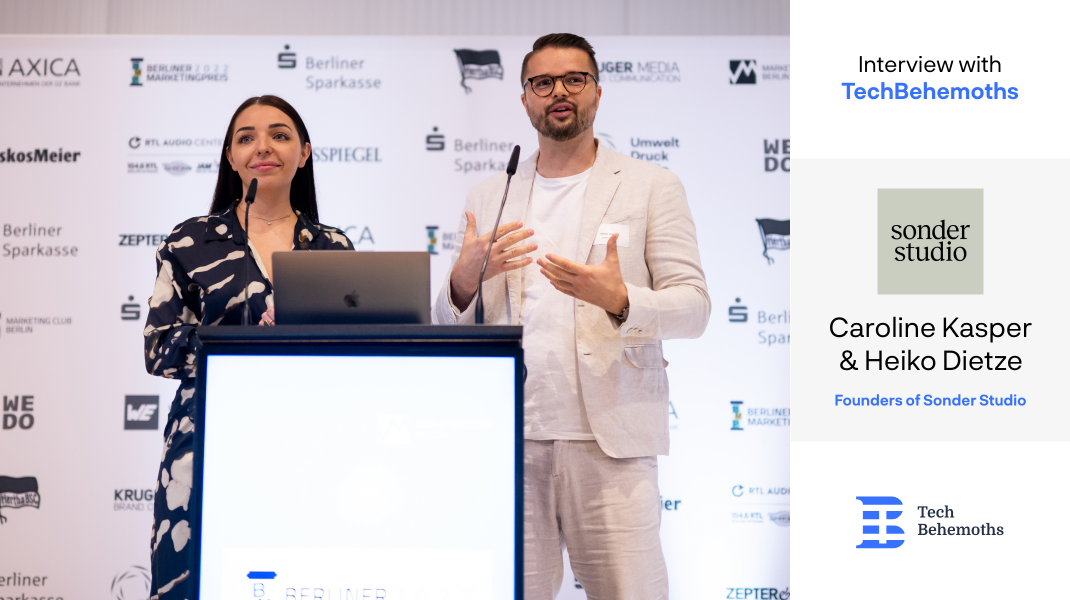
Last time we explored the topic of working spaces in London. How do they influence the success and failures of most tech startups. If you missed it, here is the post we advise you to read.
Today we are speaking with two very promising and talented specialists in verbal and visual branding from Berlin, Germany. Heiko Dietze and Caroline Kasper, the founders of Sonder Studio.
1. Hello Caroline, hello Heiko! Thanks for accepting our invitation. To break the ice, could you please introduce yourself?
Caroline: I am the co-founder of Sonder Studio and head of design. As I am half German, half British I’d like to believe that I combine the British sense of humour with German cooking skills (thankfully not the other way around). Although I feel most drawn to the southern part of Europe. When I am not at the office I love extensive walks in nature. You can always rely on the fact that every animal will be cuddled in my presence (especially cats).
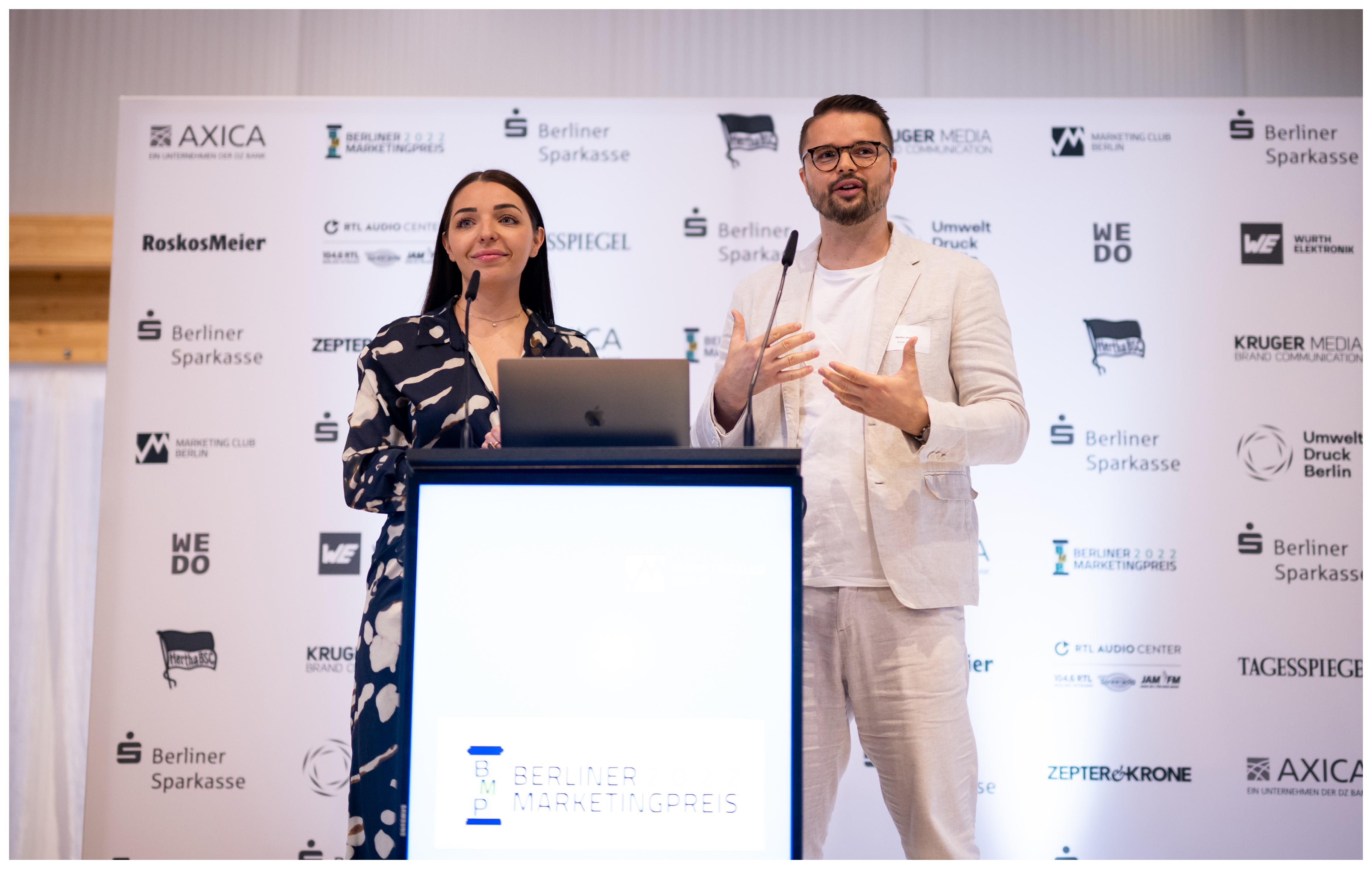
Heiko: I come from a small town in Thuringia, the part of Germany known for its delicious dumplings and bratwursts. But also one of Germany's greatest poets lived there for a time. Friedrich Schiller's genius didn't rub off on me, but I also consider myself a creative spirit. Whether I'm playing in a band, creating something with software or inventing claims - these are things I like. It is therefore obvious that, in addition to my duties as founder, I'm also responsible for copywriting and development at sonder studio.
Outside of work, I enjoy also learning languages and I’m into history. I try to keep fit at the gym and I’m always up for a chat about football or world politics.
2. What is your story of entering the digital world? Was it always your clear choice?
Caroline: No, not at all. In fact, I studied political science and worked as a radio journalist. But I realised that this job didn’t fully suit my personality. The part I did enjoy most though was telling stories from a different angle. And when I discovered to link this passion to creating unique websites with a strong personality I unlocked my true passion. This gave me fresh impetus to go back to university to study communication design.
Heiko: I was drawn to it in the late 80s. Although in the GDR, before the fall of the Berlin Wall we only had „stone-age computers“ like the KC-85 from Robotron. I remember how happy I was back then when I got my "Amiga 500" in 1992. After a short time, friends and I formed a group to create computer "megademos". It was super-popular at the time and fascinating to see what was already possible back then: from 3D animations to amazing songs, composed on the computer. As a 13- year-old, the screen was the centre of my world. Until the demise of Commodore’s Amiga computers. But when I bought my first MacBook Pro in 2010, I became a digital addict again.
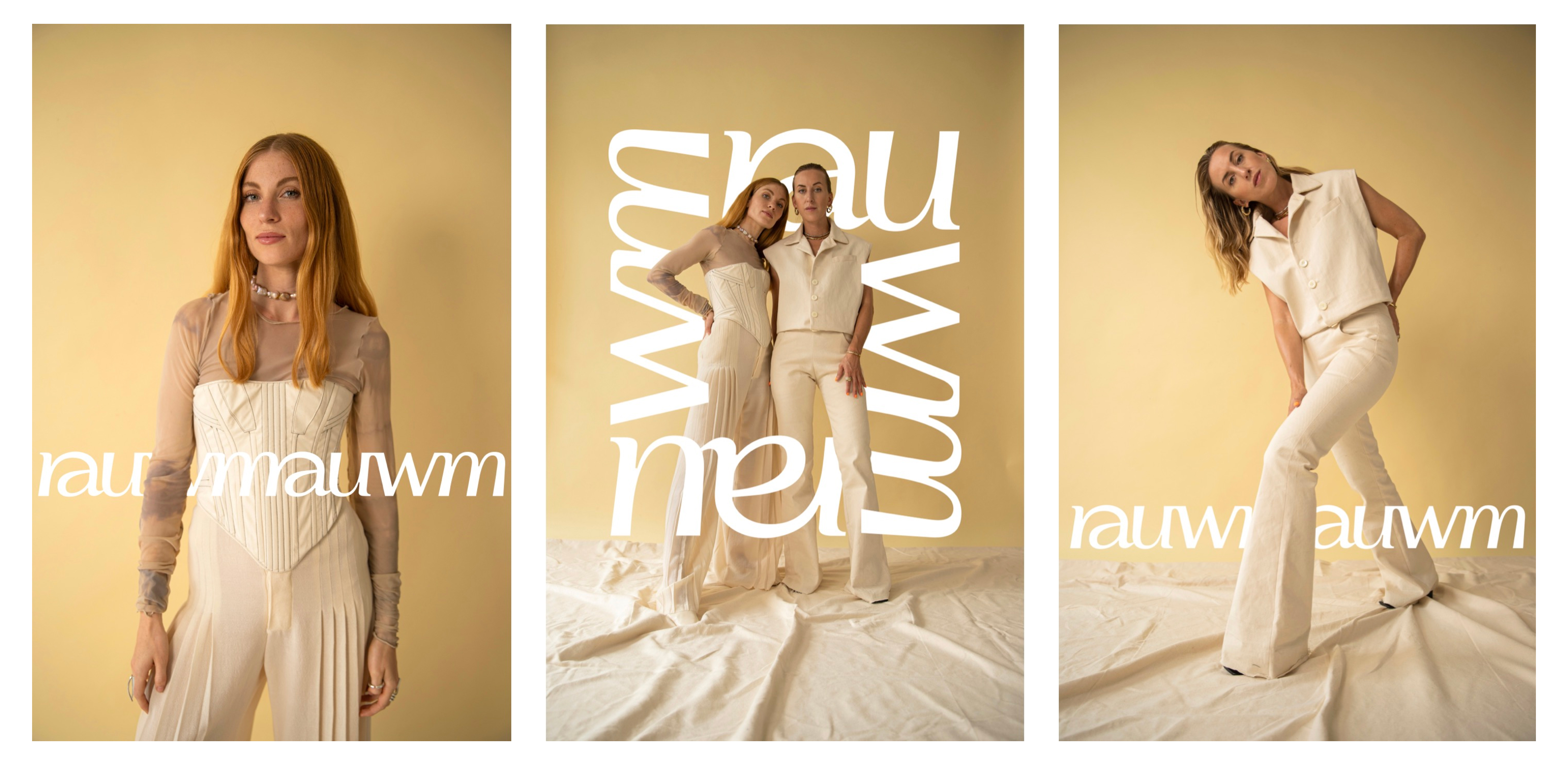
3. How to manage to combine in an efficient way business and creativity? How to separate them to be profitable and not compromise an inch in creation and quality?
Heiko: This is always a difficult balancing act. I know "the addiction" to the even better idea - the even better headline. Of course, a lot of routine helps to recognise when something is "a nice piece of work".
Caroline: It’s crucial to identify which part of the business needs creativity and which doesn’t. We strive for a very custom outcome for our clients (very creative part) but we don’t need to be creative when signing a contract for instance.
What really helps us is to follow the same process in every project and communicate a clear project planning right from the start. We set exact checkins for every milestone even before starting a project – and commit to it religiously. So our clients know exactly when they see us and what we will show them in the upcoming 3-4 months. This way we avoid endless feedback loops, unmet expectations and unprofitable projects. And you know what they say: happy client, happy life. ;-)
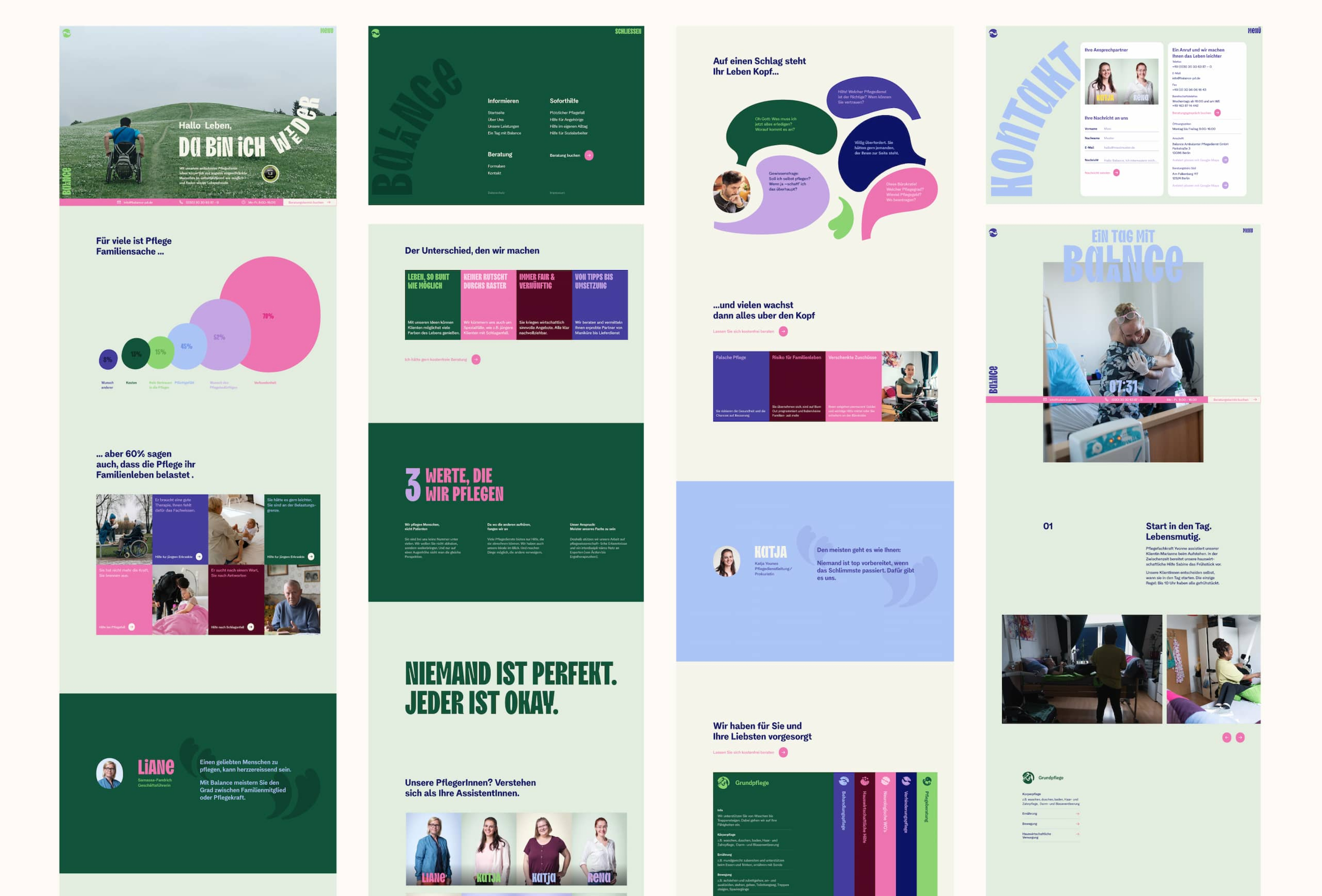
4. Do you consider yourself business people or creators? Or maybe something in between? How would you call that?
Caroline: I am a creator at heart and a business woman out of necessity. My mission is to help purpose-driven businesses to unbottle their true identity so they can help the world write better history. And I have a very clear vision on how to get them there and what that should look like. So I had no other choice but to build something my own.
Heiko: A businessman with a creative streak? :) My philosophy is: in order to deliver an excellent creative service you have to think business. We are not just creative for the sake of it. We solve real life business problems for our clients. So our creative work is very valuable. And it’s our responsibility to make sure we get paid what we are worth.
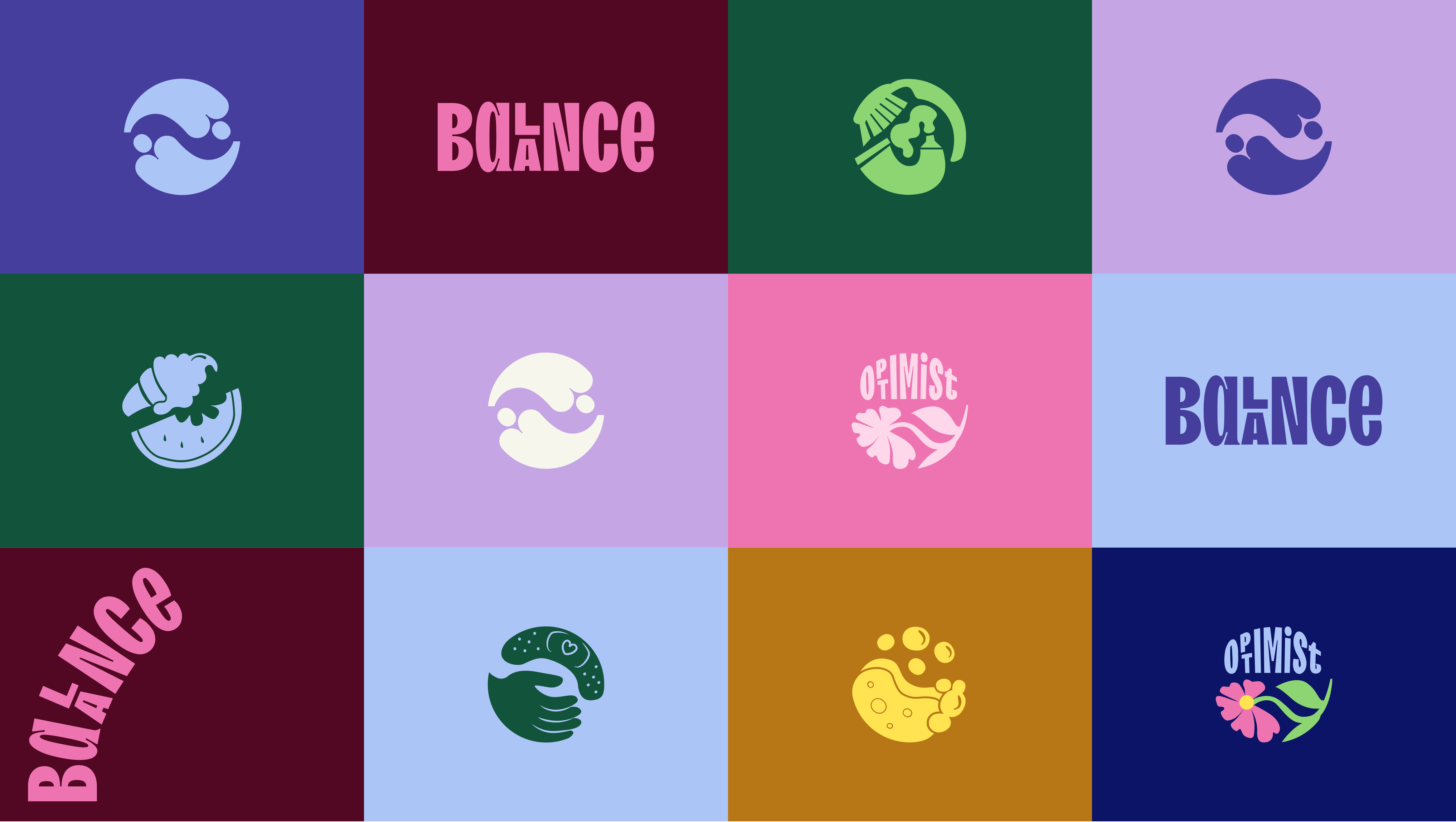
5. You work a lot with corporates and businesses. What is your perspective on corporate culture today? What pros and cons do you see, in comparison with smaller agencies, startups or companies?
Heiko: I was employed for a long time in companies with 100-250 employees and although we were in the media industry, we were always behind new, especially digital developments. The rise of social media, for example, we only observed with interest, in my opinion. Employees themselves took tentative first steps. And even years later, there were no real experts.
Caroline: We observe that traditional companies focus on hustling to build a great product. Often leaders wonder why their employees have little drive, aren’t proud of their work. It’s because they have no skin in the game. There is no collective identity. No mutual vision beyond revenues. No purpose on why to get up in the morning and spend the best hours of your day at work – apart from being paid.
Sometimes in our 9 to 5 tunnel we forget that work was invented to serve society. We shouldn’t associate work with sitting 8 hours in a chair to pass time, get paid. We should be sitting in our chairs to work towards a change we believe in.
So the way we see it: brand identity is not just a powerful starting point for external marketing (such as a website) but more importantly the source for a healthy corporate culture.
Heiko: Startups on the contrary don’t know this identity crisis as they tend to be founded to solve a certain problem so the purpose is already built in and the team strongly identifies with it. They tend to struggle more with communicating their purpose to the outside.
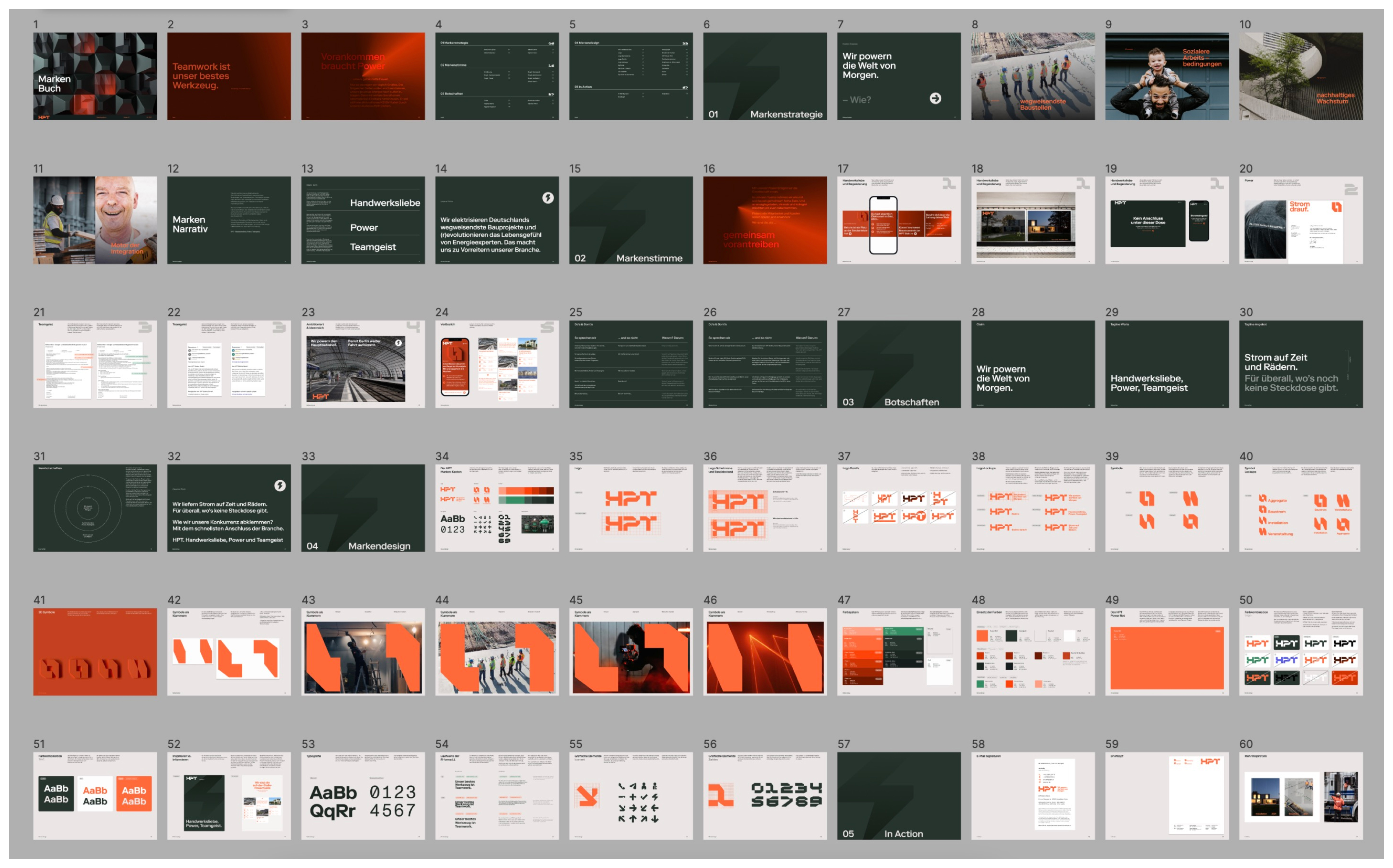
6. Is this one of the reasons you started Sonder? But let's also take one step back, please describe to us what is Sonder Studio.
Heiko: No, but it could have been the reason! We started Sonder Studio because we wanted to make premium branding techniques (the ones big global brands use) accessible for smaller businesses. We have so many world class SME’s in Europe and we think they deserve more recognition.
Caroline: We are a boutique branding studio from Berlin. We work with purpose driven SME’s (from ca. 20-250 employees) that help the world write better history. Within a 4 month-process we sharpen their visual and verbal identity so that people (outside and inside) will understand, feel and support their vision. Our benefit: The mix of design and copywriting is typical for advertising agencies - but not yet for branding.
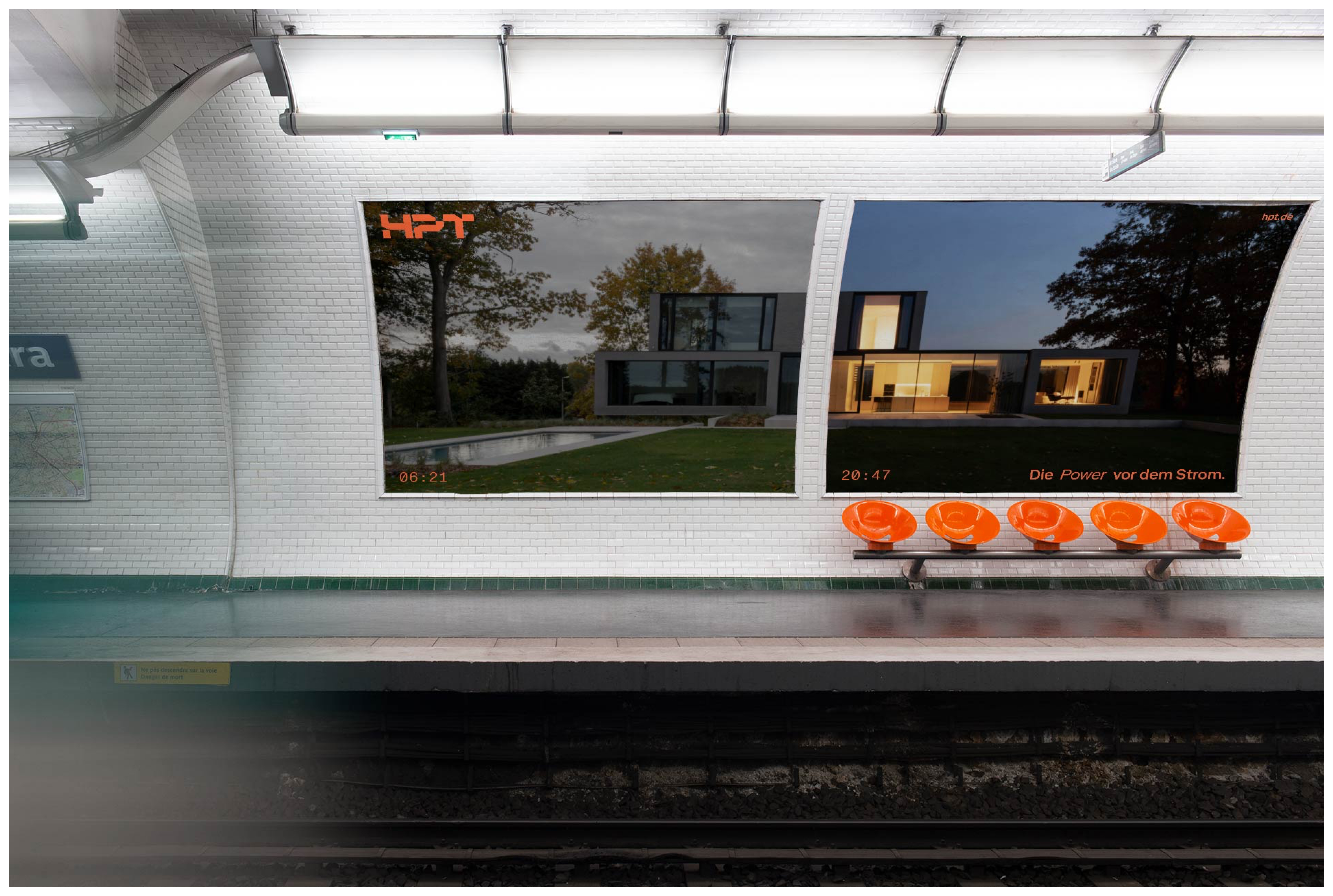
7. I know that in September 2022 you won second place in a prestigious award for marketing in Germany. What was that for? How did you get it? How was your experience and do you think it will help you in future?
Heiko: We won 2nd place at the Berlin Marketing Award which was very exciting. And it was for a case study about making a 30-year-old Berlin craft company sexy again after a generational change - in order to attract new employees in the battle for skilled workers.
Caroline: We made strategies accessible to HPT that are used by major international brands. From brand strategy with holistic goals to a conceptual corporate design (visual identity) and a charismatic brand voice (verbal identity). Because a craft business can also have a brand story. And a very exciting one at that. We developed 2D and 3D graphics to present the HPT brand from all perspectives. We got a few enquiries and maybe one or two companies have us on their radar.
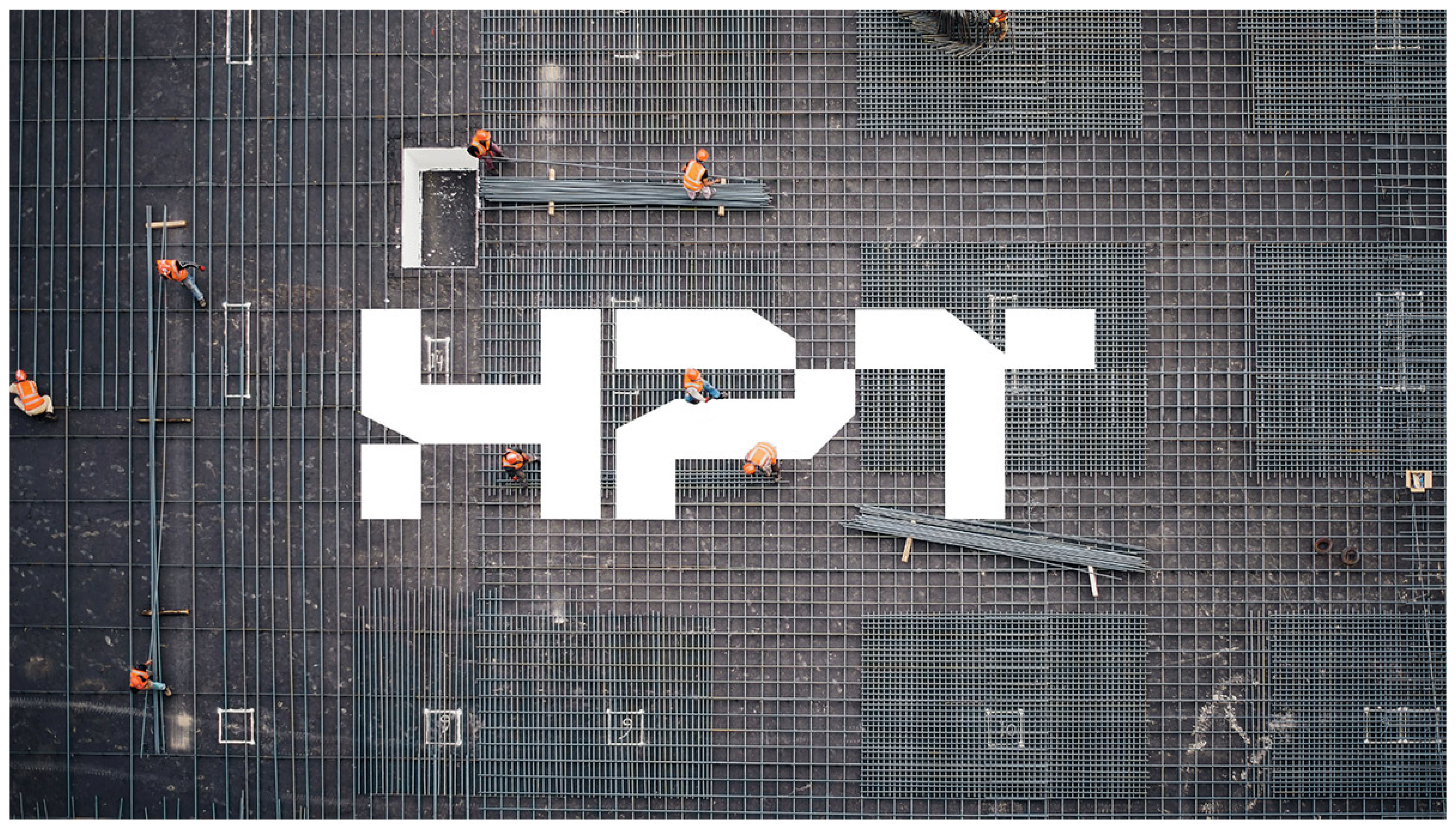
8. Working with clients is not an easy thing. What tools are you using in your daily work? For work and management, to keep your focus, efficiency and quality of work & life balance high?
Heiko: We use a clever SaaS-tool for our offers and bills, we use Monday.com for project management and we try to explain our results in convincing presentations. Oftentimes we use Loom videos in which we can give our clients way more background and perspective than an email could. Which is what they really like.
Caroline: We sometimes also take a nice walk around the small but beautiful peninsula close to our office. This helps us relax when days get stressful and even have a change of perspective.
9. What are your soft and hard skills?
Caroline: I am good with strategy and concepts. I also have a strong background in digital and UX design. But I’d say creating captivating presentations is my super power. When it comes to soft skills, I consider myself a very empathetic person and a good listener.
Heiko: From my time as a freelancer and now as a founder, I have learned that I am good with clients. I get along very well and quickly with all kinds of people. Maybe my sense of humour helps with that. I'm also good at playing with words. In my head I often create more or less silly puns, slogans or names. This source of ideas is often very helpful when creating copy and claims.
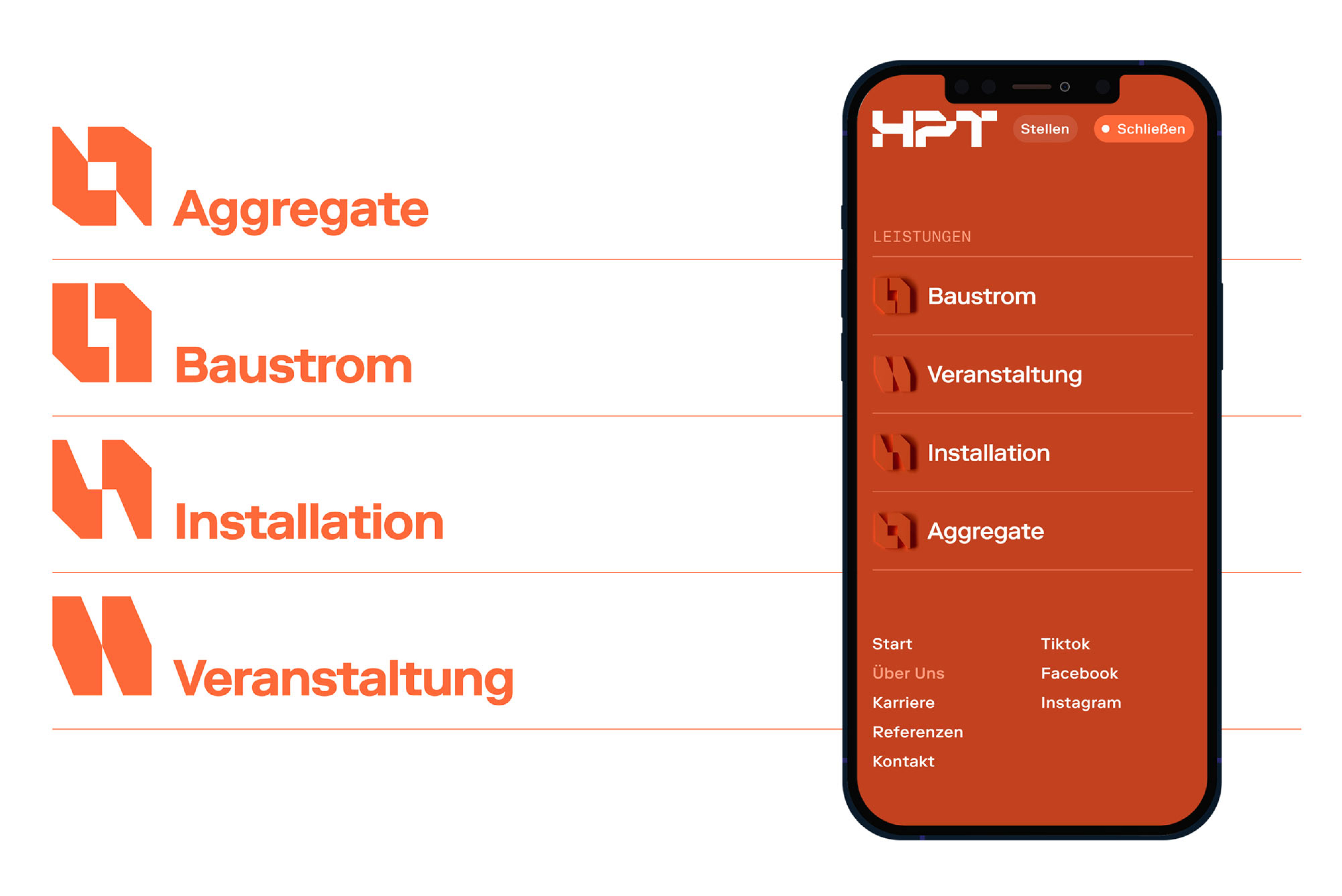
10. Regardless of how big a success, there is always one or even more cases that make us reflect on what went wrong and how to not repeat that again. I believe you have some as well. What did you learn from them?
Heiko: After I read the book „Essentialism“ in which Greg McKeown advises to chose clients and opportunities very wisely, I am more confident in handling clients that don’t fit our own client profile.
Caroline: One of my biggest learnings is: only do the things you are really good at. When you start off you think you have to do it all: from UI-Design, to e-mail campaigns, print design and performance marketing. This resulted in long days because you lack experience in some fields and mediocre results for the client. It’s much better to focus on a few disciplines and achieve excellent results. For the rest of the tasks we rely on our strong network of experts we’d like to pull in for certain projects.
11. Realistically speaking, what are Sonder's goals for the next 1-2 and 4 years? Of course, you can go beyond the cold-blooded plans and share the romantic ones as well.
Caroline: Our mission statements says: „We boost the impact of purpose-driven companies that help the world write a better history“. And we want to go more in this direction. We would like to work with companies like Enda – Kenyas first company that produces running shoes. Or fairafric, which built the first chocolate fabric in Ghana (chocolate is normally produced outside Africa, which leaves the farmers with pennies for their hard work).
Heiko: Or Heliatech from Dresden who invented organic, self-adhesive solar panels from Dresden. You can stick them even on the thinnest roof or on round buildings. And one very practical thing: we would like to move into our own office space soon. Shared co-working spaces are all fun and games until they aren’t.
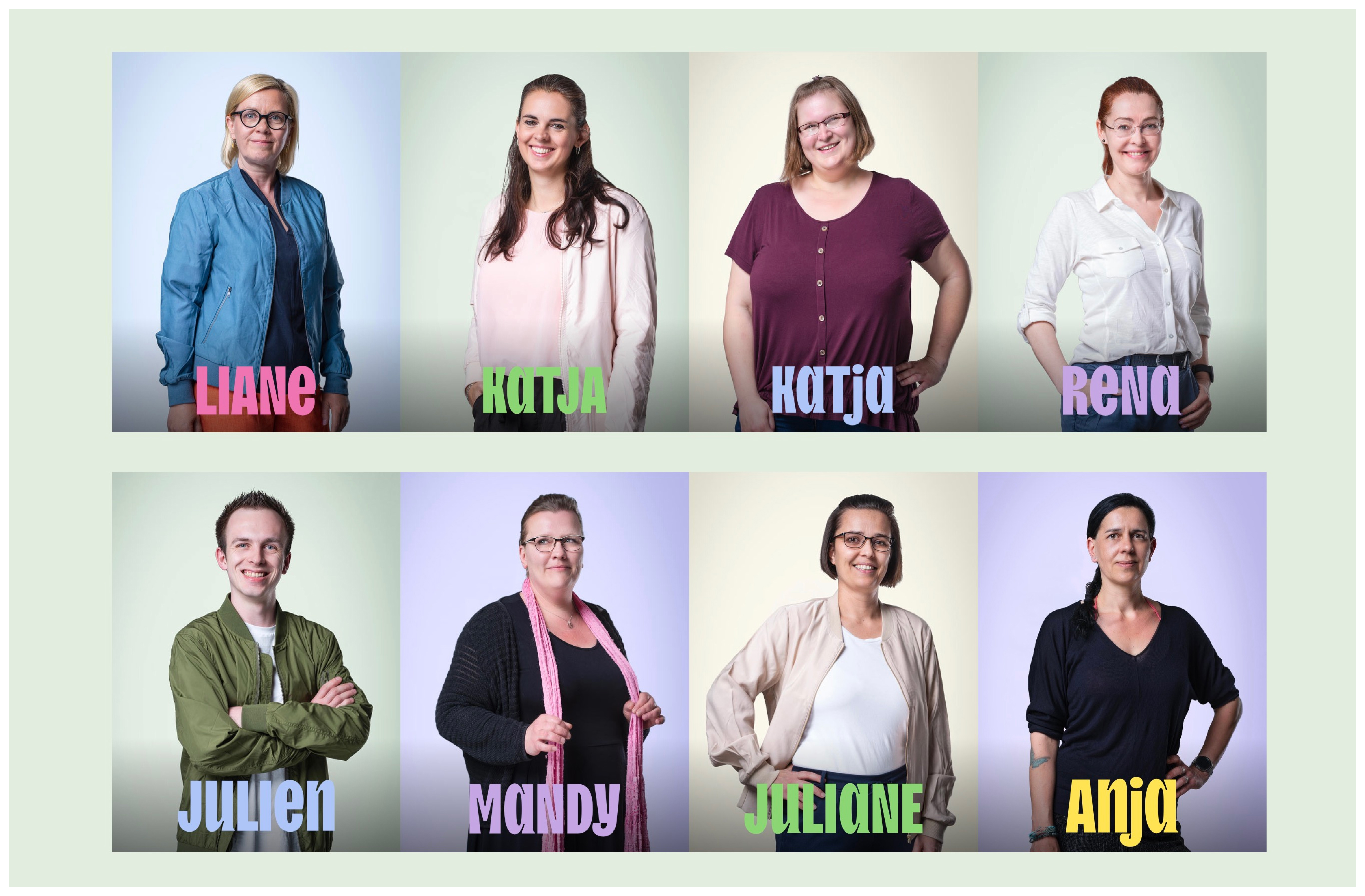
12. I love talking with you, but for the sake of our reader's time, I will ask you just three more. If you would meet Jeff Bezos next week, in what circumstances would you want that to happen and most importantly, what would you ask him, or talk about?
Heiko: His entrepreneurial performance is incredible and a conversation would certainly be very inspiring in parts. But I'd rather ask why he doesn't use his power more forcefully to make the world a better place. Instead of flying into space in a penis-shaped rocket.
Caroline: I can only agree with that.
13. To continue this topic, if having such an opportunity, what one person would you want to meet (dead or alive)? And what would you talk about?
Heiko: One of the people I would like to meet the most would be the ancient philosopher Socrates. It is said that his main occupation was to lead other people to knowledge - by asking them a series of clever questions. I would love to see his famous technique live and in action.
Caroline: I’d love to meet the fictional character Ted Lasso. I think his character is truly inspiring.
14. And this is more complex, but I know you have the vision to foresee it and answer - how do you see humanity and our lives in 2030? This is just 8 years from now. Both from a social, economic, and cultural way.
Heiko: I believe that even more people in the world have recognised the need that we can only get ahead on many issues and problems if we work together across nations and continents.
And that we finally no longer argue about the unimportant things, like the Northern Ireland Protocol, but about how to build the enormous solar power plant in the Sahara together, for example. And make it useful on many levels for people and humanity.
Caroline: On the one hand I am excited to see a future that moves away from patriarchal capitalism and gender normative rules. A future that allows people to live more freely and according to their needs rather than societal conventions. On the other hand I see this future slip away merely because power hungry men distract us from real pressing matters: climate change – and force us figure out things like Brexit, gas bills or territorial claims.
15. Caroline, Heiko, I enjoy talking with you, but everything has to come to an end, sadly. What advice would you give to our readers? Or what good piece of advice did you get at the right time in the past, and you would share it yourself today?
Heiko: My advice is about positioning. For many years, I often struggled with this. One of my copywriting gurus - Sean D'Souza - cleared the fog: uniqueness often hides in the ordinary or mundane. The trick is to choose one of these advantages
and then build your business around it. For example, there is only one hotel in Manhattan that claims to guarantee the best night's sleep. They created many features to back this up: a pillow menu (13 to choose from!), a 24-hour sleep consultant at reception or sleep-in playlists. All this made the Benjamin Hotel world famous. You can do the same.
Caroline: I live by Walt Whitmans advice: Be curious, not judgemental. Genuinely listen to people of all kinds of backgrounds and new horizons will open.
I hope our today guests inspired you and made you talk about design and marketing without friends or colleagues. If you find that interesting as well, reach out to them at any time on LinkedIn, or, simply give them a visit in their Berlin Mitte office.
Caroline Kasper on LinkedIn
Heiko Dietze on LinkedIn, Twitter
Sonder Studio on LinkedIn and Instagram
Until the next time!